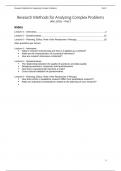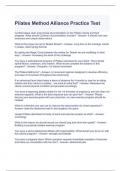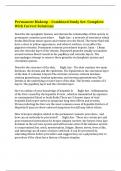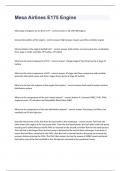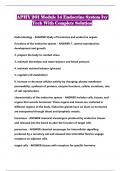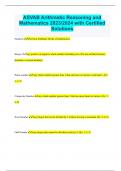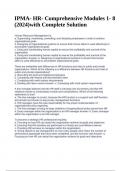Research Methods for Analyzing Complex Problems
(AM_1182) – Part 2
Index
Lecture 4 – Interviews............................................................................................................. 2
Lecture 5 – Questionnaires...................................................................................................12
Lecture 6 – Planning, Ethics, Role of the Researcher (+Recap)............................................18
Main questions per lecture
Lecture 4 – Interviews:
What is research interviewing and how is it applied as a method?
What are the characteristics of successful interviews?
How are research interviews conducted?
Lecture 5 – Questionnaires:
The relationship between the quality of questions and data quality
Designing questions, responses and questionnaires
How does a questionnaire become a scale?
Cross-cultural validation of questionnaires
Lecture 6 – Planning, Ethics, Role of the Researcher (+Recap):
How does ethics in qualitative research differ from quantitative research?
What are important considerations related to the planning of your research?
1
,Research Methods for Analyzing Complex Problems Part 2
Lecture 4 – Interviews
Take home message
The research interview…
Is a more or less controlled interaction (verbal & non-verbal)
In a specific situation
Has direction and shape (interviewer 'in charge')
Serves a specific purpose (RQ)
In a dynamic, reciprocal relationship (interviewer interviewee)
Doing a research interview…
Is a skill, a craft
Can be very challenging in practice
Involves both empathic and analytic listening
Needs proper preparation (design, organization, impression management)
Interviewing
A (sometimes underestimated) skill, craft learning by doing!
Most theory seems like common sense (Q&A)
Can be quite challenging in practice (language, time, conceptualization, etc.)
How to effectively use this common sense while (preparing for) interviewing?
Qualitative interviewing
Different from everyday life conversations
It is a controlled interaction
You (the interviewer) are the main instrument
You want to achieve something
You want to dissect everything that is being said
"… In essence, a conversation that is directed, more or less, towards the researcher's …
[interviewers] … need for data" (Green and Thorogood, 2009).
The research interview…
Is a controlled interaction
Using verbal and non-verbal exchange
In a specific situation
Bodies in a physical space
Has direction and shape
Interviewer is in charge and wants to know something
Serves a specific purpose
Design and structure according to a goal (RQ)
In a dynamic relationship
Between interviewer and interviewee(s)
Don't pose your research question, don’t ask it.
You have a goal with the interviewee, ideally you want to analyze everything that’s said, but
that gets unpractical. Also look at their body language or their emotions.
Additional stuff that they have to say maybe after the interview.
If someone wants to change their answer after they already have given their answer:
Somewhere in the middle.
o But ask things like: did I understand you correctly…
o Etc.
2
, Research Methods for Analyzing Complex Problems Part 2
Why use it?
One of the main data collection tools in qualitative research
Powerful way of understanding others; in-depth exploration of language (rich data)
Very good way of assessing people’s perceptions, views, attittudes, values, reasons,
motiivations, meanings, definitions, experiences, etc. of soituations and constructions of
(their) realty
Not a very good way (on its own) to find accurate information or ‘truth’: biases,
forgetting, mistakes, social desirability, co-creation, etc.
Interview: forms, types, purposes
Wide variety of forms: Individual face-to-face verbal interchange, face to face group
interviews, mailed, self-administered questionnaires, telephone interview
Different types: Structured, semi-structured, unstructured
Multiple purposes: marketing, gather political opinions, therapeutic reasons,
evaluations, produce data for academic analysis (measure a scope or to understand
a perspective)
A one-time, brief exchange, or five minutes over the telephone (e.g. workshop evaluation)
vs
Multiple, lengthy sessions, spanning days (e.g. life history interviews)
Typology: structure and depth
Inductive:
Deductive: questionnaires, hypothesis testing; we already have a theory. Once we collect
data analyze patterns say something.
But be in the middle: semi-structured
You have an idea of how certain ideas are explored, conceptual model, but also very
open for new strategies.
Open to different types of knowledge.
3

